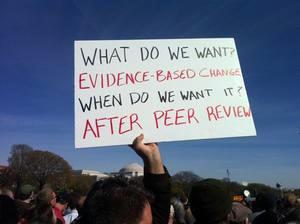I just finished reading Pricing the Priceless: A Health Care Conundrum, by Joe Newhouse. It’s not an easy read, but it is loaded with value. The final paragraph makes a crucial point.
[A]ll [health care financing] arrangements that can be implemented have important drawbacks. Although variation in ideology plays a role in the payment methods that different countries use, the wide variation in institutional arrangements around the world as well as the ongoing efforts at attempting to reform and improve those arrangements in almost every country are consistent with that conundrum.
A close corollary is that any proposal to reform any health system is imperfect. Each comes with obvious or hidden deficiencies, threatened by potential market or government failures. This is also the message conveyed by Katherine Baicker and Amitabh Chandra in one of my all-time favorite papers pertaining to health policy, about which I wrote,
To some readers, this might seem uselessly equivocal, the mutterings of the proverbial two- (or three-) handed economist. To me it is a strong dose of reality. Baicker and Chandra tell it like it is, and it is complicated. No single, simple idea is going to solve everything. In my view, anyone who says otherwise is either selling something or misguided, or both.
I can’t tell you how many emails and comments on this blog I’ve read (or posts elsewhere) that suggest all will be solved by a single-payer system, or more consumer-directed health plans, or by driving the profit motive out of the health system, or any number of other very simple ideas. I guarantee, not one of them will solve all our problems. Nor will the ACA.
Still, we should choose the “best one,” the “least worst,” right? Naturally! But that’s not at all defined. Cost minimization could be a goal, but it’s far from a universal one (zero spending on health care is very low cost). Maximize quality? What’s quality? Maximize economic welfare? How, in the presence of market and government failures?
There really is no unique, rational way to choose. In promoting a single idea, nobody is 100% right! It is, therefore, appropriate that the system we have and the one we’ll get will be a messy hybrid that imperfectly balances many interests. The best anyone can do is to enter the reform dialog with open eyes. We can’t achieve a perfect system, but we can at least be more fully informed about the state of things and the limitations of alternatives. If we can’t choose correctly, we can at least choose wisely.
(Photo h/t, Greg Mankiw.)



